(Note to Readers: In observance of Confederate History Month, 2024, we begin with a brief career and character sketch of the distinguished Southerner and Confederate Veteran, Judge John Henry Rogers (1845-1911), of Fort Smith, AR. Below the fold I have posted the introductory passages of Judge Rogers’s twelve-thousand word oration, “The South Vindicated,” given on the second day of the 1903 UCV Reunion, held in Jackson Square, New Orleans. Both the sketch of Judge Rogers’s life and remarkable achievements, as well as the introductory remarks in his speech, were extracted from the June,1903 issue of the Confederate Veteran magazine. Given the length of Judge Rogers’s oration, combined with the sketch of his distinguished life and career, I have divided it into several parts, to be published in succession during this month at this site. -TM)
A Sketch of Judge Rogers:
“John Henry Rogers, soldier, lawyer, Congressman, and jurist, was born on a plantation near Roxobel, Bertie County, N. C., October 9, 1845, the third child of Absalom and Harriet Rogers, and grandson of William Rogers, a farmer and mechanic, who lived and reared a family of twelve children in Pitt County, N. C. His father was a wealthy planter before the war, but, being deprived of his slaves and everything but his lands, was reduced to poverty by that disaster. In 1852 the family, consisting of his parents, brothers, and two sisters, removed to a cotton plantation in Madison County, Miss. He attended schools near his home until 1861, and, in addition to the ordinary branches and a little Latin and Greek, he acquired some proficiency in military drill. This accomplishment he made useful at the outbreak of the war, when he was chosen drillmaster of those of his schoolmates who were over fifteen years of age; and in the following fall he acted as instructor of a company of home guards, although most of its members were between forty and sixty years of age.”
“In March, 1862, he was mustered into the Ninth Regiment, Mississippi Infantry, at Canton, Miss., as a private. In the battle of Munfordville (Green River), Ky., he was wounded while charging the enemy’s breastworks. He was subsequently in the battles of Murfreesboro (Stone River), Tenn., Chickamauga, Ga., Mission Ridge, near Chattanooga, Tenn., and Resaca, Ga. He was in the engagements before Atlanta, July 26 and 28, 1864, and was wounded at Jonesboro, Ga., in September, 1864. He fought at Franklin, Tenn., November 30, 1864, and at Nashville, Tenn., December 15, 1864.”
“In April 1865, although but nineteen years of age, he was promoted by special order of Gen. Johnston to the rank of first lieutenant, and he commanded Company F of the Ninth Mississippi Regiment until the capitulation of Johnston’s army. Returning home by foot, about one thousand miles, he began reviewing his studies, and entered Center College, Danville, in September, 1865, and the University of Mississippi in 1867, where he was graduated in 1868. He was admitted to the bar at Canton, Miss. After teaching a short time, he began his legal practice at Fort Smith, Ark., in February, 1869, and shortly after his arrival at that place entered the office of Judge William Walker.”
“From 1871 to 1874 he was in partnership with that eminent lawyer; for the following three years he practiced alone, and then for five years served as first circuit judge of the Twelfth Judicial Circuit. This office he resigned, on account of impaired health, in May, 1882, and in the following November was elected a member of Congress, where he served in the forty-eighth, forty-ninth, fiftieth, and fifty-first Congresses. Throughout his public career he made few set speeches, but worked laboriously on committees, and took an active part in the daily proceedings. During the last six years he was a member of the Judiciary Committee, and specially devoted his energies to securing legislation amending the criminal laws of the United States, and reorganizing the Federal judiciary system. He was successful in securing the writ of error to persons convicted of felony, and witnessed the creation of the United States Circuit Court of Appeals, largely the outcome of his own persistent efforts to have them established as a remedy for the congested condition of the business of the Supreme Court.
“The bill passed was, however, only a modification of his own plan of abolishing the Circuit Courts, and making the District Courts the great repository of original jurisdiction, civil and criminal, while the Circuit Courts of Appeal should be composed of the circuit judges then in office and two others to be appointed. Thus a stable court of three judges would be secured, and the supreme judges relieved of all Circuit Court duty. The Supreme Court of the United States would be a great constitutional court, but would retain limited supervisory control, as before, over the United States Circuit Court of Appeals, to the end that harmony of decision on questions of general law might be secured. Such an arrangement Judge Rogers still hopes to see established, and is encouraged by the fact that it has already been partially adopted in the Eighth Circuit, where four circuit judges now constitute the court.”
“In the fifty-first Congress Judge Rogers came prominently fore the public as the opponent of the Speaker, his speeches assailing what he believed to be the arbitrary and oppressive conduct on the part of that official being published by the press throughout the country. Many of these speeches, in their biting satire and argument, were considered masterpieces of their kind. In the interest of his constituents he secured, while in Congress, the passage of a bill donating the abandoned United States military reservation adjoining the city of Fort Smith to that city in trust for the public schools, which have since realized a munificent trust fund from this source. He also secured the construction of a handsome public building for use as a post office and by the United States courts, and of a commodious prison, while through his efforts a United States Circuit Court was established at Fort Smith in place of a United States District Court formerly held there, which had Circuit Court powers, and exercised jurisdiction over a part of the State of Arkansas, and criminal jurisdiction over all the Indian Territory.”
“Retiring from public life, after the fifty-first Congress, Judge Rogers practiced law at Fort Smith, in partnership with James F. Read, until November, 1896, when he was appointed by President Cleveland, successor of Hon. I. C. Parker, late United States District Judge for the Western District of Arkansas. He is President of the Board of Education of Fort Smith. In 1895, on the occasion of his delivery of the annual address to the alumni of Center College at Danville, Ky., that institution conferred upon him the honorary degree of LL.D. Judge Rogers was married October 9, 1873, to Mary Gray, only daughter of Dr. Theodore Dunlap and Elizabeth Gray, of Danville, Ky. Four sons and one daughter are living, their first child, Theodora, having died at the age of two years.”
The South Vindicated – Reunion Oration by Hon. J. H. ROGERS
“Mr. Commander, Ladies and Gentlemen, and Fellow Comrades: No man could be insensible of so great a privilege and honor as this occasion confers on me. This uncounted multitude finds itself assembled in the greatest of all Southern cities. Every inch of its soil has been consecrated by the blood of heroes and patriots. Here, in Jackson Square – fragrant with the magnolia, jasmine, and rose, adorned with evergreens, shrubbery, and flowering plants – stands, and should forever stand, Mill’s equestrian statue of the Sage of the Hermitage, clustering around whose name and fame, entwined with the early fortunes of this beautiful metropolis, are holy memories more lasting than marble and brass; preserving forever the noblest examples of civic and military achievements, and giving inspiration, hope, and courage to the countless millions of his countrymen. Why are we here?”
“No fanatical religious crusade prompted this immense concourse. Here are to be found all creeds and faiths and beliefs, in perfect peace with each other, freed from all antagonisms to excite the passions of men. In yonder sky are no angry clouds of pestilence or war; no impending danger threatens our land, demanding consultation and means of protection from enemies within or without. We are at peace at home and abroad! Neither are we weary pilgrims to a holy Mecca, seeking absolution of our sins, nor are we aspirants for social or political preferment. This is no vast political convention or mass meeting, assembled for purposes of considering grave matters of state or seeking to confer honors on favorite sons. Nay, nay, none of these. What is it that has brought us together?”
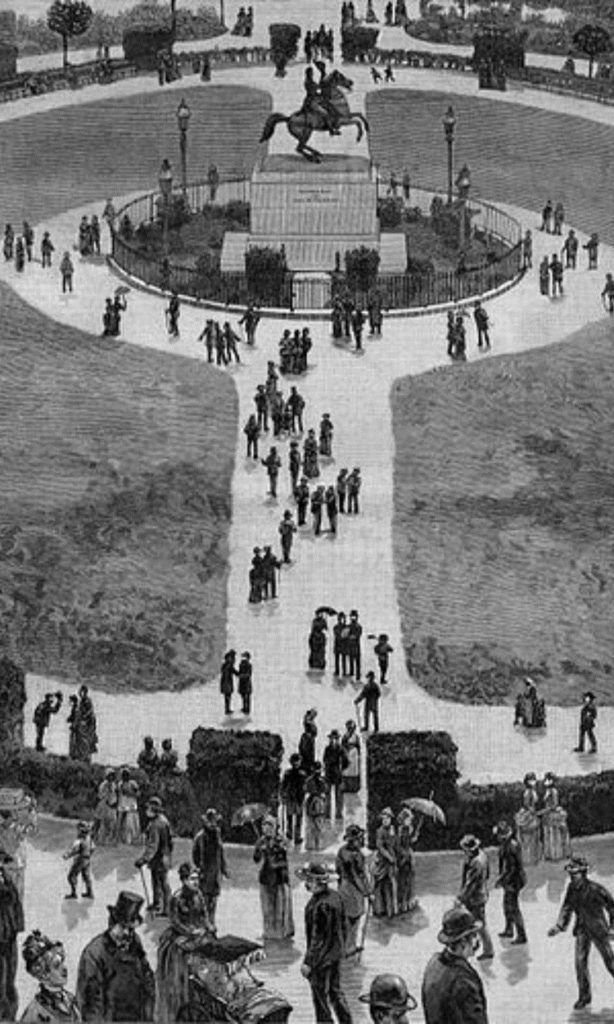
“This great assembly hall, festooned with bunting and flags, emblems of liberty and power; its amphitheater filled with the brave manhood and lovely womanhood of the South; these venerable men, the survivors of the tremendous conflict of the sixties – all these things tell of a deep, underlying cause. This great sea of upturned faces, glowing with life, intelligence, and sympathy – if not with joy unmingled with sorrow – proclaim that the purpose of our assembling has made a deep impression upon our hearts. We need not repress the emotions by which we are agitated. Whenever and wherever these reunions occur, we are standing amid the sepulchers of our dead. Every foot of our beloved Southland is distinguished by their courage, their sublime fortitude, their self-denial, their unwavering devotion and patriotism, and sanctified by the shedding of their blood.”
“Thirty-eight years separate us from the events of which I shall speak. ‘Time and nature have had their course’ in diminishing the numbers of those who surrendered at the close of the great ‘Civil War,’ but neither time nor nature can relieve those who survive of the duties they owe to the memory of our unrecorded dead, to our posterity, to our beloved Southland, and to ourselves.”
“We are here today to discharge, as we may, those duties, and to renew old friendships, forged in the white heat of common sufferings, and hallowed and sanctified by the conscious conviction that in the hour of trial and peril we were true to the Constitution as it was framed and handed down to us by Washington and his compatriots.”
“We are here also to pay tribute to that noble band of Southern women, the mothers and daughters of the Confederacy, to whom the great Southern chieftain dedicated his book, “The Rise and Fall of the Confederacy,” in words ever to be remembered:
To the women of the Confederacy, whose pious ministrations to our wounded soldiers soothed the last hours of those who died far from the object of their love; Whose domestic labors contributed much to supply the wants of cur defenders in the field; Whose zealous faith in our cause shone a guiding star undimmed by the darkest clouds of war; Whose fortitude sustained them under all the privations to which they were subjected; Whose floral tribute annually expresses their untiring love and reverence for our sacred dead; And whose patriotism will teach their children to emulate the deeds of our revolutionary sires.
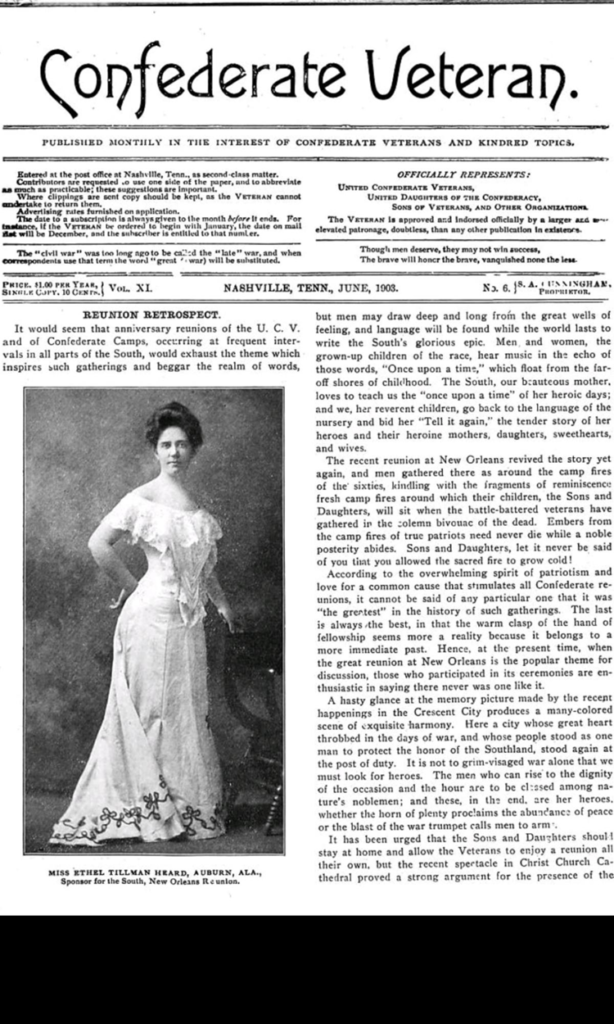
“All hail to these splendid women, nobly represented here this day by the Confederated Southern Memorial Association, which took upon itself, when peace came, to care for our dead and erect monuments to their memory. Welcome, welcome to them and to the representatives of all other true organizations which are contributing toward the works of love in which we all feel the deepest concern.”
“A gifted and distinguished son of Alabama, the author, the statesman, the scholar, and the man of God, the late Dr. Curry, has written two books, one entitled “The Southern States of the American Union,” and the other, “The Civil History of the Confederate States.” Both should be carefully read and studied by every intelligent man and woman, North and South, who wishes to know the truth and where to find it, and to do justice to the South. In the former is found this passage:
The establishment of truth is never wrong. History, as written, if accepted as true, will consign the South to infamy. If she were guilty of rebellion or treason, if she adopted or clung to barbarisms, essential sins, and immoralities, then her people will be clothed, as it were, with the fabled shirt of Nessus, fatal to honor, to energy, to noble development, to true life.
“The same author uses this striking language:
That the conquerors should make laws for the conquered seems a political, as it is the ordinary, consequence of the conquest. It is not so obvious, nor so logical, that they should make history.
“In another passage he says:
One of the most singular illustrations ever presented of the power of literature to conceal and pervert truth, to modify and falsify history, to transfer odium from the guilty to the innocent, is found in the fact that the reproach of disunion has been slipped from the shoulders of the North to those of the South.
“No thoughtful man can pass lightly over such statements. If true, they are a warning to us that if we value our good names, our parts had in the tragic struggle of the sixties; if we would not have our very children in the near future, if not ashamed and apologizing for us, then unable to defend us, we must not be idle in preserving, recording, and teaching the real facts upon which the righteousness of our actions must depend.” […]
[To be continued in Part II]



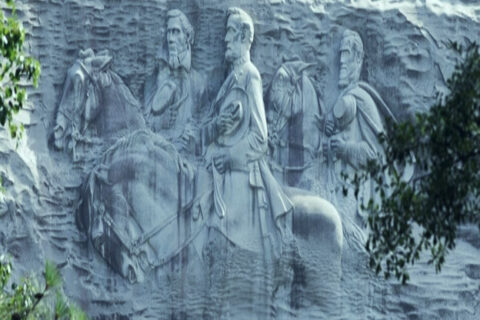
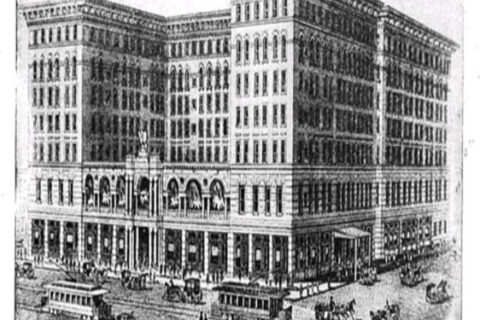
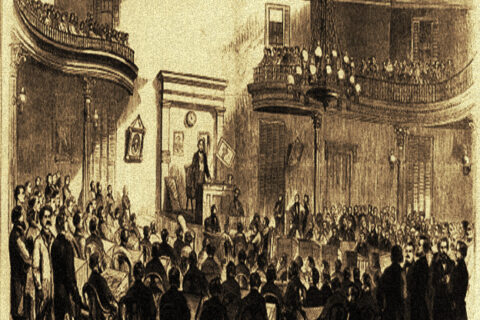
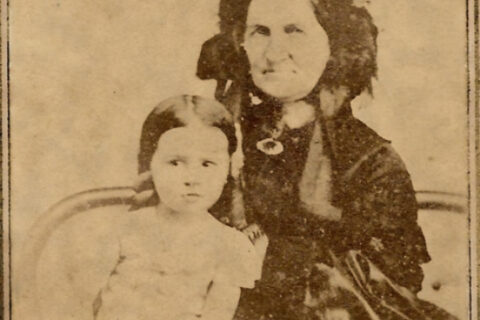
“in addition to the ordinary branches and a little Latin and Greek.”
This should really speak to all of us about the decline in the quality of both the education and the capacities of learners in the present day. I’ve read some of the math problems in elementary texts from that day, and they’re beyond my ken!
Dr. Curry is absolutely correct. The study of true history (i.e., what actually happened and what was the true character of the actors) is essential if the present age is ever to learn humility and repentance.
not just in education. the standards in all of America has to be lowered so that negros and illegal aliens can keep up. America as a free country is over. it was killed with the passing of the uncivil rights laws of 64 & 65.